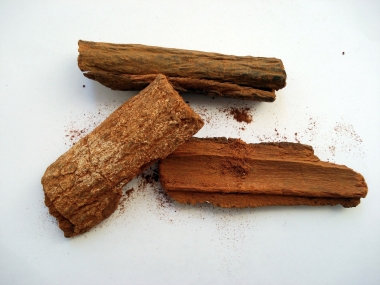Homeopathy was born in 1790 from the thoughts of the German researcher Samuel Hahnemann. Very controversial in the medical world, he wished to apply the principle of similarities, a theory first mentioned by Hippocrates in Antiquity. This theory explains that a product responsible for symptoms in a healthy person can cure a sick person with the same symptoms.
The birth of homeopathy
In 1810, S. Hahnemann defined the three pillars of the medicine he had just created and which he explained in his work "The Organon of the Art of Healing": personalisation of treatment, similitude and dilution.
Personalisation of treatment is based on the principle that each patient is unique and requires personalised treatment.
Similarity is based on treating symptoms with homeopathic medicines that produce this effect before their homeopathic dilution. S. Hanneman is famous for having tried cinchona bark on himself which cured malaria while reproducing the symptoms of malaria.
Dilution is the principle of making a chemical molecule harmless by diluting it as much as possible in water in order to preserve its therapeutic properties while eliminating the risk of toxicity.
Homeopathy, the scientific controversy
Very critical of this theory, many German doctors did not support S. Hahnemann who had no choice but to move to France. In this difficult period, he was supported and followed by many disciples who shared his enthusiasm and spread the word by presenting homeopathy as a fundamental law of nature. They did not hesitate to speak of a divine art that the scientific world tried to silence by all means. Thus, the practice of homeopathy proliferated in France and throughout the world until 1838. Somehow, in contradiction with the hostile opinion of French medical institutions, the Homeopathic Society of France was created. This foundation made it possible to maintain the dissemination of homeopathic knowledge and to defend its interests. This medicine will survive and develop after the death of S. Hahnemann in 1843.
Homeopathy, a French parenthesis
In 1932, almost a decade after the death of S. Hahnemann, the twin brothers and French pharmacists Jean and Henri Boiron decided to produce homeopathic medicines on an industrial scale in response to strong demand from the medical profession.
After 80 years of glorious years, French homeopathy, which was an exception in terms of reimbursement and coverage by the social security system, was delisted due to a lack of relevant scientific studies that struggled to demonstrate its effectiveness and its medical service.
The memory of water
This name is given to the hypothesis of the French immunologist Jacques Benveniste according to which water that has been in contact with certain substances will retain an imprint of their properties, even if the substances are no longer in contact with the water. This hypothesis, which has been refuted by scientific authorities, would have made it possible to explain the therapeutic properties of homeopathic medicines.
To go further, see our article: "Homeopathy: When and how to take your granules".
Updated on 03 April 2022 at 20:36







